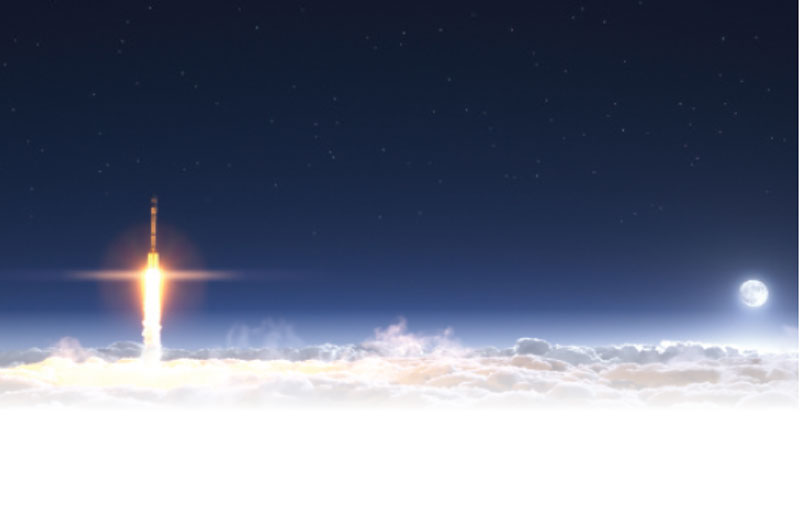Recent jaunts into near space by entrepreneurs, actor William Shatner and the ultra-wealthy have inspired waves of criticism among those who insist their fortunes could be better spent on Earth. How, they say, can Jeff Bezos and Elon Musk invest billions in next-generation space technology when so many are starving?
How can the privileged few blow US$250,000 a head for 10 minutes outside Earth’s atmosphere when others are in need? Even Prince William weighed in. “We need some of the world’s greatest brains and minds fixed on trying to repair this planet, not trying to find the next place to go and live,” he told BBC. But commercializing space travel, as Bezos and Musk are doing, is just one more step toward other lofty goals: space-based technology development (including systems that could help save the planet), exploration and colonization.
Seven decades after the Soviet satellite Sputnik launched the space race, the unmentioned threat confronting humanity is the militarization of the skies above the stratosphere.
That’s according to a team of three space experts—two from McGill University in Montreal. Space science is important to advancing humankind’s understanding of the planet and its place in the universe. And it has practical applications: navigation, tracking weather, enhancing land use, etc. But the writers cautioned against space-based conflict. “The desire to counter the space ambitions of others and to achieve superiority in space seems to have re-emerged,” they said. “Despite the proliferation and commercialization of space activities, and the recognition of space as an essential part of every country’s economic, social and scientific progress, there is an alarming build-up of counterspace capabilities worldwide.”
The authors are Kuan-Wei Chen, executive director of McGill’s Centre for Research in Air and Space Law; Ram S. Jakhu, acting director of McGill’s Institute of Air and Space Law; and Steven Freeland, emeritus professor of international law at Western Sydney University in Australia. Their essay on the militarization of space appeared Oct. 11 in The Conversation, a series of online think pieces written by academic experts and researchers and distributed by a network of not-for-profit media outlets.
“Even as private citizens can now crew space missions, military strategists are warning the competitive and congested nature of space will lead to an outbreak of conflict in outer space,” they wrote. “Simmering tensions on Earth increase the risk that humanity may somehow lurch into an unimaginable space war, destroying economies and critical civilian and military infrastructure that have become so heavily space-dependent.”

The Chinese are developing “everything from reversible jammers of our GPS system—which provides navigation and timing with precision—to jamming of communications satellites,” Raymond told the Nikkei Asia news service. “They’ve got missiles they can launch from the ground and destroy satellites. I’m convinced that these capabilities that they’re developing would be utilized by them in their efforts in any potential conflict.” Raymond said space also underpins “all of our instruments of national power…diplomatic, economic, information and national security.” “It goes across all facets of governments. Space is critical to that.”
In November, Russia conducted a missile test that destroyed one of its own satellites and created a debris field that forced the International Space Station crew to take shelter in their capsules. Such developments appear to run contrary to international treaties prohibiting the weaponization of space and U.S. President John F. Kennedy’s September 1962 declaration that essentially laid down the rules of the space race: “Its conquest deserves the best of all mankind, and its opportunity for peaceful co-operation may never come again.”
In June, G7 nations agreed on a plan to advance international rulemaking at the United Nations and other global bodies. China and Russia have expressed willingness to co-operate and have called for limits on space weapons. As for world hunger, Musk called out the director of the World Food Program, David Beasley, in October after the UN official challenged him and other billionaires to donate $6 billion to help end famine. Musk replied that if the WFP could show the accounting of exactly how $6 billion would solve the problem, he’d sell Tesla stock and donate the entire amount. Beasley subsequently posted a 1,000-word executive summary on how $6.6 billion could “avert catastrophe” among 40 million people in 43 countries. The world awaited Musk’s response.
Advertisement












